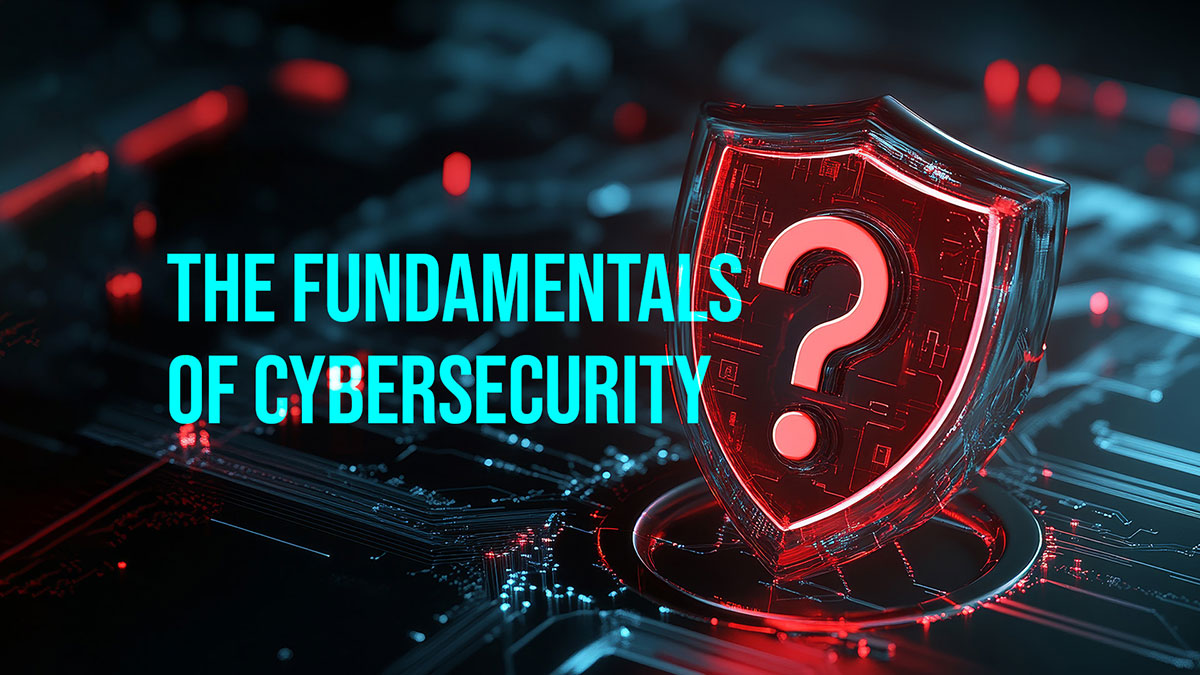The Fundamentals of Cybersecurity
What is Cybersecurity?
As time goes by, our lives become increasingly intertwined with technology. From online banking to social media, our personal and professional information is stored and transmitted online. This makes us vulnerable to various cyber threats, and that's where protection of information and cybersecurity comes in.
Cybersecurity is the practice of protecting computer systems, networks, and data from cyberattacks. It involves implementing measures to prevent, detect, and respond to threats that could compromise the confidentiality, integrity, and availability of information. In simpler terms, it's about keeping your digital world safe.
Why is Cybersecurity Important?
Cybersecurity is crucial for several reasons:
- Protecting Personal Information: Your personal data, such as ID card numbers, passwords, and medical records, can be valuable to cybercriminals. Cybersecurity measures help safeguard this sensitive information.
- Preventing Financial Loss: Cyberattacks can lead to significant financial losses for individuals and businesses. Ransomware, malware and phishing scams are just a few examples of how cybercriminals can exploit vulnerabilities to gain access to your bank account information and steal your funds.
- Ensuring Business Continuity: For businesses, cybersecurity is essential for maintaining operations and preventing disruptions caused by cyberattacks. A breach can damage a company's reputation, lead to legal issues, and even force it to shut down.
How to Implement Cybersecurity Measures
There are several steps you can take to improve your cybersecurity:
- Use Strong Passwords: Create unique, complex passwords for all your online accounts and avoid using the same password for multiple sites.
- Enable Two-Factor Authentication: Add an extra layer of security to your accounts by using two-factor authentication, which requires a second form of verification (e.g., a code sent to your phone).
- Be Cautious of Phishing Attempts: Be wary of unexpected emails, texts, or calls that ask for personal information. Never click on links or attachments from unknown sources.
- Keep Software Updated: Regularly update your operating system, applications, and antivirus software to patch security vulnerabilities.
- Use Antivirus and Anti-Malware Software: Protect your devices from malware and other threats with reliable security software.
Types of Cybersecurity Threats
Cybercriminals use various tactics to attack systems and steal data. Some common types of threats include:
- Malware: Malicious software, such as viruses, worms, and ransomware, that can damage your system or steal your data.
- Phishing: Attempts to trick individuals into revealing personal information by posing as a trusted entity.
- Ransomware: A type of malware that encrypts your data and demands a ransom payment for its release.
- SQL Injection: A technique used to exploit vulnerabilities in web applications and gain unauthorized access to databases.
- Denial-of-Service (DoS) Attacks: Attacks that aim to overwhelm a system or network with traffic, making it inaccessible to legitimate users.
By understanding the importance of cybersecurity and implementing best practices, you can protect yourself and your digital assets from cyber threats. Stay informed about the latest cybersecurity trends and be vigilant in your online activities.
